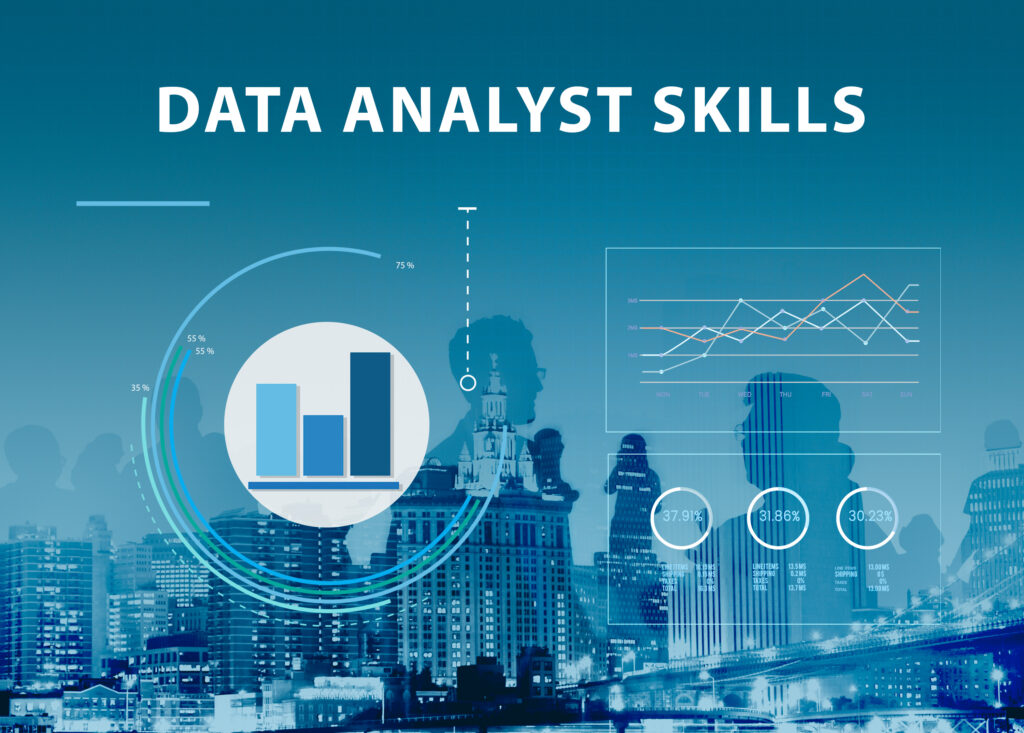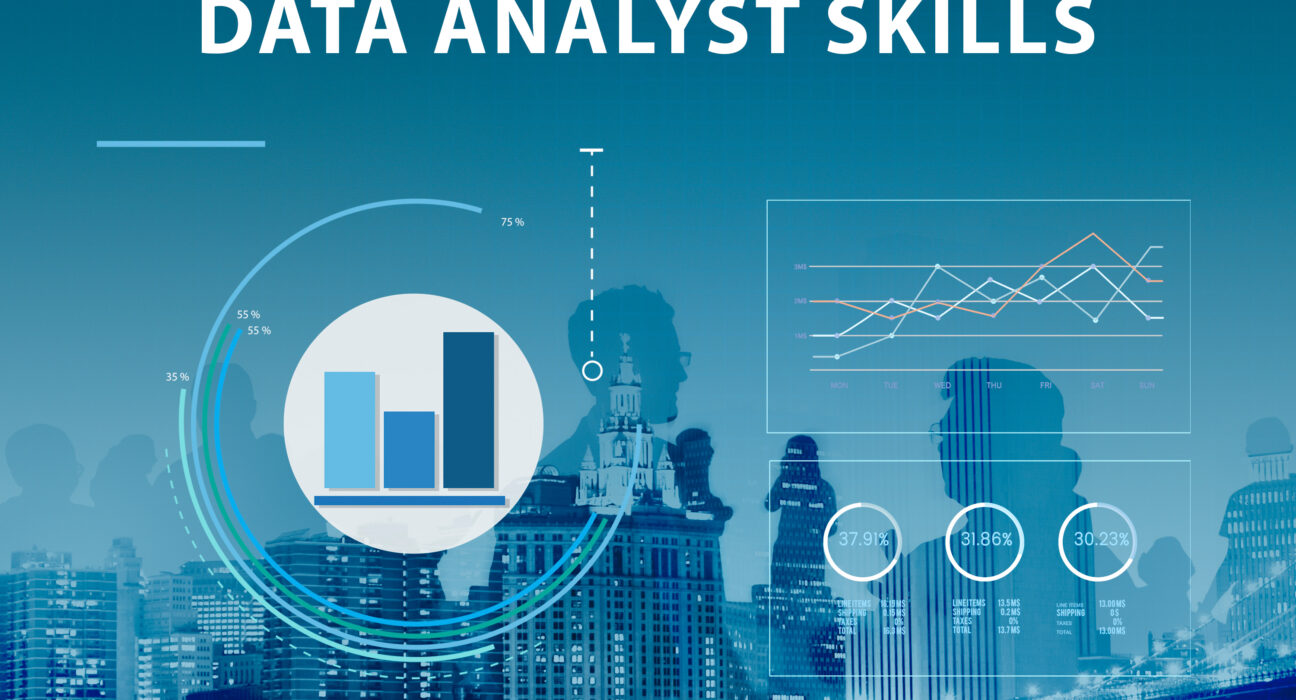
Have you always been curious about what really makes businesses tick? Do you have a knack for solving complex problems and spotting trends in data that others miss? If so, you might have what it takes to land an exciting new career as a data analyst. Data analysts are in high demand these days, and the job opportunities and salary potential are impressive.
You’ve probably been hearing a lot about data analysis and analytics roles recently. Maybe some of your friends have even made the leap into this fast-growing field. While data analysis does require some technical skills, the good news is that you don’t necessarily need an advanced degree or a background in statistics to get started. With some self-study and persistence, you can pick up the basics and land an entry-level data analyst position at a company that will help you continue learning and advancing your career.
Sound interesting? Then keep reading to learn more about what data analysts do, the key skills you’ll need, and how to launch your job search to start working as a data analyst. The future is data-driven, so now is the time to make your move into this rewarding career field.
Master in-Demand Data Analyst Skills With Datacamp

To land your dream job as a data analyst, you need to build up your skillset. One of the best ways to do this is with Datacamp. They offer interactive coding courses that teach you data analysis tools and techniques in a hands-on way.
Learn Python
Python is one of the most popular languages for data analysis. Datacamp has courses on Python basics all the way through machine learning and deep learning with Python. Start with “Introduction to Python” to learn data types, control flows, and functions. Then move on to “Intermediate Python” and “Python Data Science Toolbox.”
Master Data Visualization
Being able to visualize data is crucial for a data analyst. Datacamp teaches data visualization with Plotly, Matplotlib, and Seaborn in Python. Work through “Introduction to Data Visualization in Python” to make line plots, bar charts, scatter plots, and more. For interactive visuals, check out “Interactive Data Visualization with Plotly.”
Learn SQL
To extract data from databases, you need to know SQL. Datacamp has courses on “Introduction to SQL,” “Intermediate SQL,” and “Advanced SQL.” You’ll learn how to query, filter, aggregate, and manipulate data in databases like MySQL, PostgreSQL, and SQLite.
Study Statistics and Data Analysis Techniques
Take “Introduction to Statistics” and “Intermediate Statistics” to learn fundamentals like distributions, hypothesis testing, and regression. Then dive into “Introduction to Data Analysis” and “Intermediate Data Analysis” to gain skills in cleaning, transforming, and modeling data.
With hard work and persistence, you can build up your data analyst skills through Datacamp’s interactive courses. Keep practicing and don’t get discouraged if you make mistakes. You’ve got this! Before you know it, you’ll land an awesome job as a data analyst.
Top Data Analyst Job Skills Employers Are Looking For

To land a data analyst role, you’ll need to develop some key skills.
Technical skills
Data analysts live and breathe data, so you’ll need to be proficient in data visualization, statistics, and analytics tools like SQL, Python, R, Excel, and Tableau. These skills allow you to query databases, analyze datasets, build data models, create charts, dashboards and reports.
Analytical thinking
Strong analytical and critical thinking skills are must-haves. As a data analyst, you’ll need to interpret data, uncover patterns and insights, solve complex problems, and make data-driven recommendations.
Communication abilities
While much of a data analyst’s job involves working with data, you also need to be able to communicate your findings and insights to others. Develop your written and verbal communication skills to explain technical concepts in a simple, easy to understand manner for non-technical stakeholders. Visualizations, like charts, graphs and dashboards, are extremely useful for conveying insights.
Curiosity and adaptability
Data analysts have an insatiable curiosity about data and how it can drive business decisions. You should stay on top of trends in data analytics and business intelligence. Technologies and tools are constantly changing, so continuous learning is important. Adaptability and a growth mindset will serve you well in this role.
With the right technical, analytical and soft skills, you’ll be well on your way to becoming a data analyst. Keep practicing and stay up-to-date with the latest tools and technologies, and that dream job can be yours.
How to Get Started Learning Data Analysis Skills Online
To pick up data analysis skills, the good news is there are many free or low-cost resources online. Here are some of the best ways to get started:
Take a Free Online Course
Platforms like Coursera, Udemy, and Udacity offer courses to learn data analysis tools and techniques. These massive open online courses (MOOCs) teach skills for tools like SQL, Python, R, and Tableau. They provide interactive exercises and projects to apply what you learn. Some courses even offer certificates of completion.
Watch Video Tutorials
Websites like DataCamp, DataQuest, and Khan Academy have libraries of short video lessons on data analysis topics. You can learn skills like data cleaning, visualization, and machine learning through these engaging tutorials. The lessons teach you concepts and walk you through examples and sample code.
Read Books on the Subject
For a comprehensive introduction to data analysis, read a book like “Storytelling with Data” by Cole Nussbaumer Knaflic or “Everybody Lies” by Seth Stephens-Davidowitz. These books explain essential data analysis principles and methods in an accessible way. They provide insights into how to analyze data to find meaningful patterns and stories.
Practice with Online Tools
The best way to learn data skills is by practicing with the tools yourself. Many data analysis tools like Google Sheets, Tableau Public, and R Studio offer free versions to use. You can import sample datasets and follow tutorials to build charts, calculate statistics, and create data models. Hands-on experience will reinforce what you learn from courses and videos.
With time and persistence, you can gain proficiency in data analysis through available online resources. Keep practicing and don’t get discouraged if you make mistakes. Strong data skills will open up more career opportunities and allow you to gain useful insights from data. You’ve got this! Now get out there and start honing your craft.




